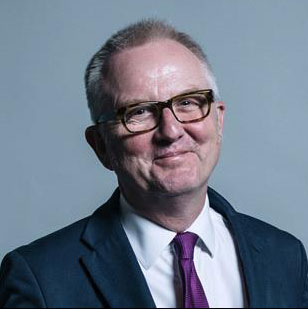Who we are
UK Media Research Centre (UKMRC) is a not-for-profit organisation established to combat extremism and help uphold the British values of tolerance and moderation.
We are dedicated to supporting responsible journalism and exposing extremism.
Our remit covers all forms of extremism, including far-right, Islamist, far-left, and environmental.
We have a team of established journalism and communications professionals who draw upon a diverse range of skills and experience.
They are ready to assist journalists and broadcasters with stories and investigations and offer high-quality advice to those seeking to engage with mainstream media.
What we do
UKMRC carries out a range of work in the media sphere related to extremism.
- We conceptualise, plan and deliver campaigns to reach the UK public and influence decision-makers.
- We have the expertise to provide bespoke communications advice on subjects ranging across the full spectrum of extremism and related issues.
- We source commentators with particular expertise on specific areas of extremism for news media and are ready to place them at short notice for breaking stories.
UKMRC staff work with journalists to provide research, guidance and contacts for stories and investigations that shed light on extremism.
We put the highest priority on ensuring the provision of accurate information to the public.
Our media expertise and focus on extremism enables us to deliver impactful results, whether reacting in real time to breaking news or managing significant projects which take months to come to fruition.
Board of Directors



Extremism in the UK
The UK has faced an increasing threat from extremism in recent years, manifested in acts of violence escalating to riots and terror attacks; hate speech; and social unrest and division.
All parts of society and every region of the country are vulnerable to the effects of extremism.
The threat to community cohesion, tolerance and moderation has led to the realisation that more needs to be done.
Both Conservative and Labour governments have made clear their desire to crack down on extremist ideologies when they emerge but have often struggled to develop effective responses.
The vast majority of the British public are moderate, and want an end to extremist violence and ideologies which seek to forcefully disrupt our communities and the values that underpin our free, democratic society.
Islamist extremism
Islamist extremism refers to a political ideology (rather than religious belief) which seeks to impose sharia law and establish an Islamic caliphate.
Some groups espousing Islamic extremism advocate violence and have been proscribed in the UK under the Terrorism Act.
On 7 July 2005, the first Islamist suicide bomber attacks took place in the UK, in which 52 people were killed on three underground trains and a London bus.
In May 2017, an Islamist suicide bomber murdered 22 people at a pop concert at the Manchester Arena and injured more than a thousand further victims.
In 2021, the town of Batley in West Yorkshire became a flashpoint of social unrest linked to Islamist extremism when a teacher was forced to go into hiding after showing images of religious figures in a class.
Far-right extremism
Far-right extremists follow a creed of white nationalism or white supremacism, often advocating racial or cultural superiority and exclusion.
Historically, far-right extremists have been linked to ideologies such as Nazism and groups like the British Union of Fascists which promoted fascist ideals in the UK during the 20th century.
Some far-right groups espousing extremist ideologies, such as National Action, have been proscribed in the UK under the Terrorism Act owing to their promotion of hate speech, violence and acts of terrorism.
In 2016, MP Jo Cox was murdered by a man with far-right affiliations who shouted nationalist slogans during the attack.
Far-right extremism poses an ongoing threat, with groups exploiting social media platforms to spread propaganda and recruit members.
Environmental extremism
Environmental extremism refers to a radical ideology that advocates for extreme measures to address environmental concerns, often disregarding legal and ethical boundaries in the form of ‘direct action’.
Some groups espousing environmental extremism endorse illegal methods of protest, such as sabotage or disruptive protests, leading the government’s independent advisor on political violence and disruption, Lord Walney, to recommend a new category for proscribing protest groups who regularly use criminal tactics to achieve their aims in May 2024.
The movement has roots in the 1990s with the formation of groups like the Earth Liberation Front (ELF) and the Animal Liberation Front (ALF).
More recently protests by environmental extremist groups significantly disrupted major transportation networks, high profile public events, and damaged public buildings.
Far-left extremism
Far-left extremism concerns radical ideologies seeking to dismantle capitalism and state institutions, often through unlawful or violent means.
Examples of far-left extremist organisations include the Angry Brigade’s 1970s bombing campaign targeting banks and government offices. During anti-austerity protests in the 2010s, some anarchist activists were linked to violent clashes with police and committed vandalism and criminal damage at a number of businesses in London’s West End. In 2023, left-wing anarchist Tim Hepple was convicted of terror offences after declaring intent to kill MPs and stockpiling explosives.
Incel
Incel extremism refers to the misogynistic ‘involuntary celibate’ subculture comprising radical heterosexual men who blame women and society for their lack of romantic success.
The ideology has roots in anti-women online communities known as the manosphere of which Andrew Tate is a part.
The term incel first became well-known following Elliot Rodger’s 2014 spree killing in Isla Vista, California. Before carrying out his attack, Rodger left a video and a manifesto-type autobiographical account detailing his ‘involuntary celibacy’.
In the UK the 2021 Plymouth shooting by an individual influenced by incel beliefs resulted in several deaths and highlighted the potential for violent escalation within this community.
Government resources
Prevent strategy
The Prevent strategy aims to stop people from being drawn into terrorism by providing support to at risk individuals and intervening to prevent radicalization. It focuses on a multi-agency approach to safeguard individuals and communities from extremist ideologies.
Proscribed terrorist groups or organisations in the UK
This resource lists all the terrorist organizations banned in the UK, providing legal and security context for their proscription. It includes groups that have been linked to activities such as violent extremism and terrorism.
Latest government definition of extremism
The UK government defines extremism as “the promotion or advancement of an ideology based on violence, hatred or intolerance.”
Commission for Countering Extremism
An independent body that supports society in fighting all forms of extremism by providing research, expertise, and advice to the government and public sector. It works to identify and challenge all forms of extremism and to promote the country’s shared values.
Counter Terrorism Policing
A collaboration of UK police forces working to protect the public from terrorism by preventing vulnerable individuals from being drawn into extremism, pursuing terrorists, and preparing for potential attacks. The organisation also provides public awareness campaigns to educate on recognising and reporting extremism.
MI5 on countering terrorism
MI5 works to protect the UK from the threat of terrorism by investigating and disrupting terrorist plots and working closely with other security agencies. Their counter-terrorism efforts include intelligence gathering, prevention, and safeguarding the public from extremist activities.
Overview of right-wing terrorism
This overview provides information on the threat of right-wing terrorism in the UK, including the ideologies, tactics, and the groups involved. It also outlines the government’s approach to tackling this growing threat through counter-terrorism measures and public awareness.
Overview of Incels (Involuntary Celibates)
This overview provides information on the threat posed by Incels, a sub-culture community of men who forge a sense of identity around their perceived inability to form sexual or romantic relationships.
Other resources
The Centre for Research and Evidence on Security Threats (CREST)
A national hub for understanding, countering, and mitigating security threats, including extremism. CREST conducts interdisciplinary research to provide insights into security challenges.
Community Security Trust (CST)
A British charity that protects British Jews from antisemitism and related threats, monitoring and combating extremist activities targeting the Jewish community. It provides security advice, support, and training to individuals and organisations within the Jewish community.
Counter Extremism Group (CEG)
An organisation focused on policy research and advocacy to improve the UK’s counter-extremism measures. CEG is particularly active in providing recommendations for reforming the Prevent strategy to tackle radicalisation effectively.
Counter Extremism Project
A non-profit NGO that combats extremist groups by exposing their activities and ideologies, and by promoting counter-narratives. It operates in multiple locations, including London.
Hope not Hate
An advocacy group that campaigns against racism and fascism, and has also mounted campaigns against Islamic extremism and antisemitism. It is self-described as a “non-partisan, non-sectarian organisation.”
Institute for Strategic Dialogue (ISD)
An independent think tank that develops policy solutions to combat extremism, hate, and disinformation globally. ISD conducts research and delivers programs to counter polarized ideologies and build resilience within communities.
The International Centre for the Study of Radicalisation (ICSR)
An internationally acclaimed academic research centre based in the Department of War Studies at King’s College London dedicated to studying radicalisation and political violence. ICSR aims to shape academic debates and inform policy through its research.
The Tony Blair Institute for Global Change - Extremism Policy Unit
Part of the Tony Blair Institute, this unit focuses on understanding and countering extremism by providing analysis and policy recommendations. It works to support governments and organisations in developing effective counter-extremism strategies.
The UK Safer Internet Centre
A partnership of three leading organisations—Childnet International, Internet Watch Foundation, and South West Grid for Learning—dedicated to promoting the safe and responsible use of technology. The centre provides resources and education to help protect individuals, especially children, from online extremism and radicalisation.
US-UK Academic Policy Dialogue on Countering Violent Extremism
A project fostering collaboration between academics and policymakers in the US and UK to address violent extremism. It focuses on creating a coordinated network to share knowledge and develop best practices for countering radicalisation.
Contact
Thank you for your message
We will get back to you as soon as possible.